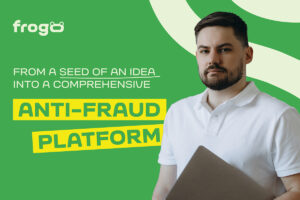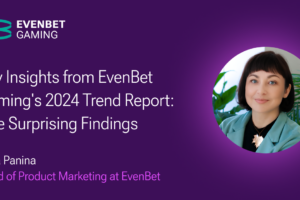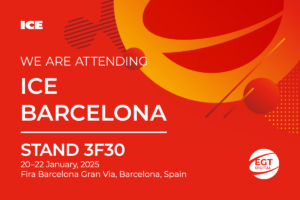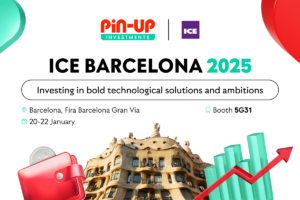Creating Frogo: the idea, key stages, and the team
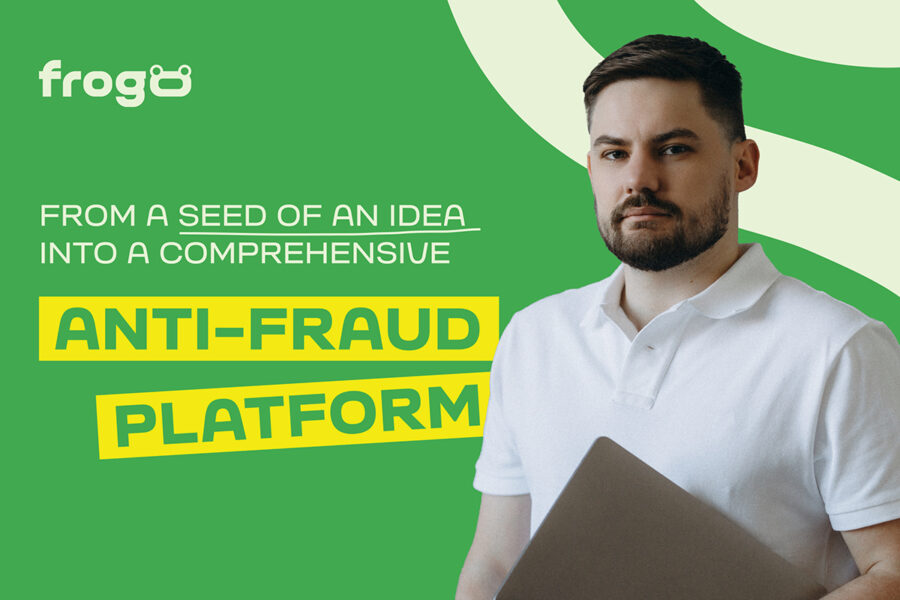
Volodymyr Todurov, CEO of Frogo, shares details about the all-in-one-anti-fraud platform.
Exclusive Interview.- Volodymyr Todurov, CEO of Frogo, has shared details about the creation of the anti-fraud platform including the development process, the key milestones, and the team challenges. Frogo was сreated by Todurov, chief analytics officer at PIN-UP Global and his team, and will make its debut at ICE Barcelona.
Where did the idea of creating your risk management platform come from?
At PIN-UP, I built a large team of analysts specialising in addressing all types of fraud. Over time, the need to minimise routine work grew, the complexity of tasks increased, and the available tools became less and less satisfactory. This led us to decide to develop a proprietary anti-fraud tool for internal use, which eventually became the working predecessor of Frogo.
The idea of bringing the product to market emerged after several potential partners independently shared their concerns about risk management and the tools needed to effectively organise this process. For us as analysts, who are immersed in fraud investigations 24/7, this was an eye-opener. We realised that not all companies conduct thorough fraud investigations, resulting in avoidable financial losses. This realisation became the catalyst for transforming Frogo into a platform designed not only for PIN-UP but also for external clients.
What is Frogo, and which companies can benefit from this product?
Frogo is a premium anti-fraud platform designed to meet the comprehensive needs of businesses in combating fraud. It offers a suite of advanced tools, including a device fingerprint, a scoring engine, AI-powered modules, and graph-based forensic tools, all aimed at detecting and preventing fraudulent activities effectively.
The platform addresses two primary business objectives: reducing financial losses by swiftly identifying fraud schemes and improving internal efficiency through the automation of routine tasks performed by anti-fraud teams.
Frogo is versatile and adaptable across various industries. In the iGaming sector, it tackles issues such as in-game fraud, bonus abuse, bonus hunting, and suspicious betting. For e-commerce businesses, Frogo detects fake accounts, fraudulent orders, and return scams. Payment providers can leverage it to monitor transactions and prevent card-related fraud, while trading and Forex platforms can analyse suspicious activities and manage risks more effectively.
CRM systems can identify unethical clients and mitigate internal fraud, dating platforms can protect against fake accounts and suspicious users, and delivery services can prevent fraud related to orders and customer data manipulation.
How was the development process for your proprietary platform structured, and what were the key milestones?
The most critical aspect for us was creating a high-quality design architecture for the product. If horizontal scaling is not accounted for from the very beginning, rewriting the product’s code later becomes a complete disaster.
After dedicating significant resources to system design, the next key milestone was selecting the right combinations of technological solutions. We conducted multiple Proof of Concept (PoC) stages to identify the best database vendors that could meet our scoring requirements.
Beyond technological challenges, we focused on optimising our project management methodology – this involved defining team structures, streamlining the Software Development Life Cycle (SDLC) processes, and implementing rigorous quality control measures.
The next major milestone was deploying the MVP version into live operations. The day we launched the integration and saw everything working seamlessly—like a Swiss watch—was truly exhilarating!
The key milestone was establishing an internal workflow within the anti-fraud department, where we seamlessly integrated our technical solutions with business operations.
About the team: challenges in building the team, growth, and current hiring needs
The development of the Frogo team started with a single individual—an R&D developer, specialising in fingerprint technology. This phase laid the foundation for the product concept. Shortly after, the first Go developer joined, providing essential support with technical matters.
Once it became evident that the product had potential, we began searching for a Team Lead and a Project Manager. At this stage, the system’s architecture was meticulously designed to ensure a solid and scalable base for future development.
The first significant breakthrough came with the release of the initial POS version when the team had grown to five members. This milestone underscored the need to push forward, prompting an active search for new talent, including Go developers and testers, to prepare for creating a Minimum Viable Product (MVP).
Recognising the importance of the user interface, we formed a frontend team to focus on the admin panel’s development. Ultimately, in November 2023, our MVP was completed. By then, the team had reached a critical benchmark, having expanded to 15 people.
The product’s success discovered new challenges, including the expansion of Data Science capabilities. This led to the recruitment of specialists in the field. Around the same time, we initiated a restructuring: the architect and project manager assumed leadership roles, and the team was divided into specialised units—Backend, Frontend, Data Science, R&D, and QA.
As the product continued to evolve, we implemented the SAFE, enabling us to better coordinate the team’s efforts and ensure scalable growth.
One year after the MVP’s release, we achieved remarkable results: the team grew to 36 members. Yet we are still expanding—there are currently four open positions: Product Manager and Software Engineers specialising in JS and Go. Frogo continues to grow, ready to tackle new challenges and achieve even greater milestones.
What development prospects do you see for Frogo as its CEO?
I see vast opportunities and potential in the B2B market for a product like Frogo. Our primary focus will be on gaining experience in B2B while analysing adjacent niches to expand our portfolio of tools and provide maximum value to our partners.
A crucial aspect of our journey is identifying and understanding our client’s needs. This means there will be no pauses—we are committed to improving the product and delivering more value every single day.





